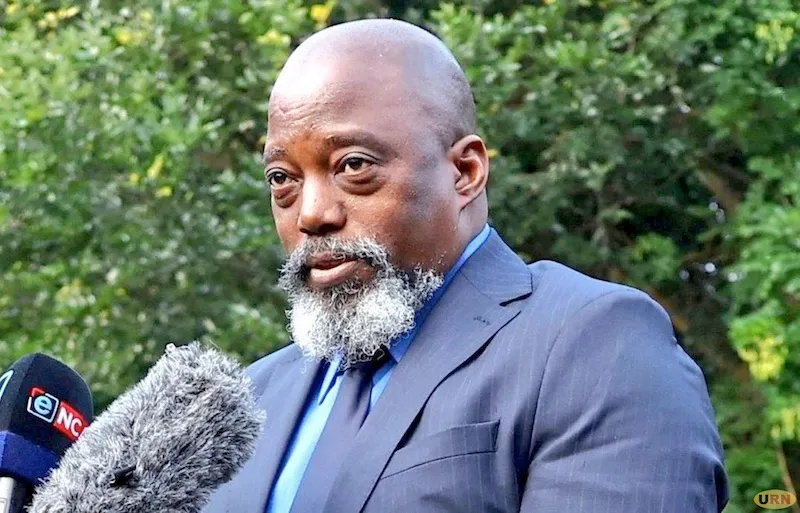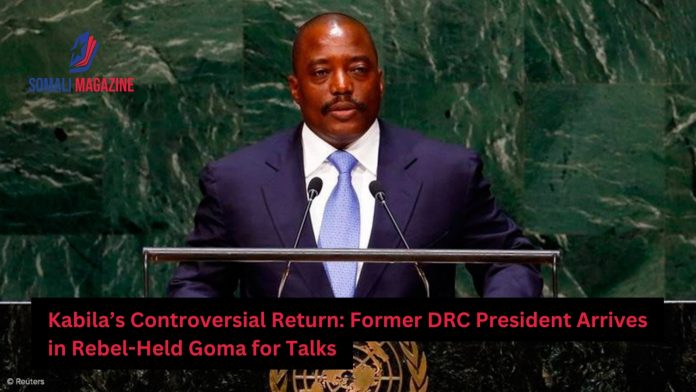Facebook Twitter (X) Instagram Somali Magazine - People's Magazine
Former Democratic Republic of Congo (DRC) President Joseph Kabila has arrived in the rebel-controlled city of Goma for talks, a move that has intensified political tensions and raised concerns over his alleged ties to the Rwanda-backed M23 insurgency. The visit, confirmed by sources close to Kabila, comes just weeks after the Congolese Senate voted to strip him of immunity, paving the way for potential prosecution over his alleged support for the rebel group.
Kabila, who ruled the DRC for nearly two decades before stepping down in 2019, has largely remained outside the country since late 2023, residing in South Africa. His return to Goma, a city seized by M23 rebels in January, has fueled speculation about his political ambitions and potential involvement in the ongoing conflict. While Kabila himself has not publicly commented on his visit, rebel leaders, including Corneille Nangaa, have acknowledged his presence in the city.
The Congolese government has accused Kabila of aiding M23, alleging that he played a role in the insurgency’s resurgence and the massacre of civilians in eastern Congo. Government spokesperson Patrick Muyaya stated that Kabila is “positioning himself as the rebel leader” alongside Rwandan President Paul Kagame, further escalating diplomatic tensions between Kinshasa and Kigali.
Kabila’s associates, however, insist that his visit is aimed at fostering peace and engaging with local communities affected by the conflict. They argue that his presence in Goma is part of broader efforts to mediate between warring factions and find a resolution to the crisis. Despite these claims, the timing of his visit has raised eyebrows, particularly as Washington pushes for a peace agreement that includes mineral trade deals to attract Western investment.

The United Nations and Western governments have repeatedly accused Rwanda of providing arms and troops to M23, a charge Kigali denies. Rwanda maintains that its military actions are defensive, aimed at countering threats from Congo’s army and militia groups linked to the perpetrators of the 1994 genocide.
Kabila’s return to the political spotlight has reignited debates over his legacy and the role he played in shaping Congo’s turbulent history. His tenure was marked by allegations of corruption, human rights abuses, and political maneuvering that allowed him to cling to power beyond his constitutional mandate. His eventual departure in 2019 followed mass protests and international pressure, but his influence in Congolese politics has remained significant.
As the situation unfolds, the Congolese government has moved to suspend Kabila’s political party and seize assets belonging to its leaders. The former president has dismissed these actions as politically motivated, accusing President Félix Tshisekedi’s administration of using the justice system as a tool for oppression.
With tensions at an all-time high, Kabila’s visit to Goma could have far-reaching implications for Congo’s political landscape and ongoing peace efforts. Whether his presence will lead to meaningful dialogue or further destabilization remains uncertain, but his return has undoubtedly reshaped the narrative surrounding the conflict in eastern Congo.

